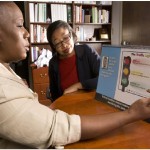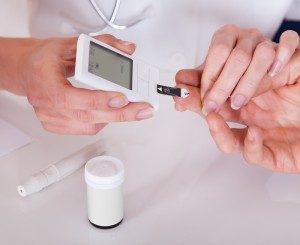
With learning disability awareness week coinciding with diabetes awareness week this year (15-21 June and 14-20 June respectively) has there ever been a better time to consider the skills that learning disability and mental health nurses have in recognising, assessing, and treating type 2 diabetes in the service user groups?
People with learning disabilities are identified as being more at risk of developing diabetes, related to poor diet, obesity and increased levels of inactivity (RCN). Chronic health problems can lead to early mortality for people with serious mental health conditions or Learning disabilities.
Diabetes UK identify that people with learning disability and diabetes may face barriers to health care as information provided may not be understood or misunderstood. Evidence indicates that an approach to overcoming this should be based on practice, participation and activity.
This study presents the outcomes of attendance at a one-day workshop, which incorporated a range of activities. The purpose of the workshop was to increase learning disability and mental health nurses’ knowledge and skills to undertake interventions for service users at risk of, or with, a diagnosis of type 2 diabetes.
The authors recognise range of skills that learning disability and mental health nurses have in assisting people with learning disabilities and diabetes to
- gain access to healthcare services suited to their needs
- teach people to meet their own health needs where possible
- adapt resources to ensure people have the same opportunities as every other member of society
- help reduce health inequalities
This study set out to find whether these nurses had the necessary health literacy to support those at risk of developing type 2 diabetes and to help manage the care of those who have the condition.

With LD awareness week coinciding with diabetes awareness week – what better time to consider skills of learning disability nurses in relation to type 2 diabetes?
Method
The project was a collaboration between service users, academics and Trust staff. A package was designed to be delivered in a workshop involving pre and post registration learning disability and mental health nurses who were invited to attend.
The workshop consisted of a guided reading package, an interactive DVD which presented a service user life story and a hands on session with simulated skills workshop.
Pre workshop questionnaires captured demographic information with regard to length of service, age, qualification and place of work (community, in-patient, etc).
- Quantitative and qualitative data were collected using questionnaires.
- Pre and post test measures were used to evaluate the project, assessing knowledge and understanding of diabetes.
- A ten-item questionnaire was used to evaluate the content of the workshop.
- Participants rated factors such as:
- Satisfaction with topic delivery
- Teaching methods
Results
110 questionnaires were collected, 62 pre workshop and 48 post workshop
The authors analysed data and identified that transfer of knowledge had taken place. Evidence indicates that while practitioners scored better in terms of knowledge the students’ knowledge improved to a greater degree.
49 evaluation questionnaires were completed
Topic delivery: 67.3% of attendees rated themselves as very satisfied while 32.7% rated as satisfied.
Teaching methods were scored on a scale of 1-5, (least to most effective): Participants ranked the clinical instruments most highly, other methods received an average score of 4, a proportion of participants (not specified) did not rate the guided reading package.
While the evidence may be that participants were motivated to attend, the findings could not conclude that there would be a direct impact on care delivery.

Participants ranked the clinical instruments most highly
Strengths and limitations
Innovative approaches were used to develop the workshop, in line with recommendations from Diabetes UK and Mencap. Key stakeholders, including service users were involved in development and participants fed back positively, specifically with regard to the video.
The authors suggest that learning disability and mental health nurses are motivated to develop their health literacy and the fact that participants were invited to attend would support that assertion. However those who attended may have had more motivation that other specialist nurses.
The authors do not identify how many overall were invited to attend and perhaps the people who attended were within a specific role or particular experience which increased their motivation to attend.
Some demographic information with regard to their experience of diabetes or influence on attendance could have enhanced the study.
There is acknowledgement that this is a small scale study and the data collection tool provided limited information. In addition to this the outcome measures could not be fully assessed within the study as 62 people completed pre-test measures however only 48 completed post-test. The authors identify that this may have been due to people leaving the workshop early.
The study included student learning disability and mental health nurses as well as qualified nurses and it may be that while the knowledge and understanding of diabetes can be taught in a generalised way, the applications to practice within the different fields may require more specificity. This was fed back from participants.
The authors recognised the varied experience and the qualitative data gave indications of this. The authors identify that a longer workshop which gives more field specific examples may also give more clinical context.
Summary
It is often highlighted that physiological issues for people with learning disabilities may be mismanaged due to limited skills and confidence within mainstream services and the risk of diagnostic overshadowing. However as a profession, there is an important role for learning disability nurses in developing and maintaining their own skills to improve health outcomes for service users. Recognising ‘People First’ and considering the holistic needs of the individual is the responsibility of all healthcare workers.
Proposed changes to nurse education within The Willis report (2015) highlights the parity required between physical and mental health and well-being across all four fields of practice. A key point raised by the authors relates to learning disability nurses requesting learning disability specific examples to support their knowledge and understanding. The important thing about this project was to increase the knowledge about diabetes as a health condition and for the participants to make the applications to practice as required. The idea being that the specialist skills within the individuals’ field of practice are enhanced by an increased knowledge of a health condition. In conclusion, the study raises awareness of the needs of pre and post reg nurses within the learning disability and mental health specialisms in meeting the complex health conditions of the client group, more specific work in this area is required.

The project helped to increase knowledge about diabetes as a health condition and considered applications to specific fields of practice
Links
Hemingway, S., Stephenson, J., Trotter, F., Clifton, A. and Holdich, P. (2015) Increasing the health literacy of learning disability and mental health nurses in physical care skills: A pre and post-test evaluation of a workshop on diabetes care. Nurse Education in Practice 15 pp 30-37 [abstract]
References
Diabetes UK Learning Disability Information Pages
Raising the Bar Shape of Caring: A Review of the Future Education and Training of Registered Nurses and Care Assistants; Lord Willis, Independent Chair – Shape of Caring review Health Education England
RCN (2013) Meeting the heath needs of people with learning disabilities: RCN guidance for nursing staff, Royal College of Nursing

Nursing skills in diabetes, recognition and management http://t.co/VmfBfB6043
People with learning disabilities are more at risk of diabetes, but how prepared are LD nurses to support them? http://t.co/VmfBfB6043 #EBP
Nursing skills in diabetes, recognition and management: are LD & mental health nurses health literate?https://t.co/KUtjtwUqpR via @sharethis
LD + MH Nursing skills in diabetes, recognition + management: https://t.co/NVCkhqxZfX via @sharethis @TeesUniSOHSC this is it @DrMarjWilson
Nursing skills in diabetes, recognition and management: are learning disability and mental health nurses health… http://t.co/MUNMVWmkbw
LD & diabetes awareness weeks: what better time to consider skills of learning disability nurses for type 2 diabetes? http://t.co/VmfBfB6043
Don’t miss: Nursing skills in diabetes, recognition and management http://t.co/VmfBfB6043 #EBP